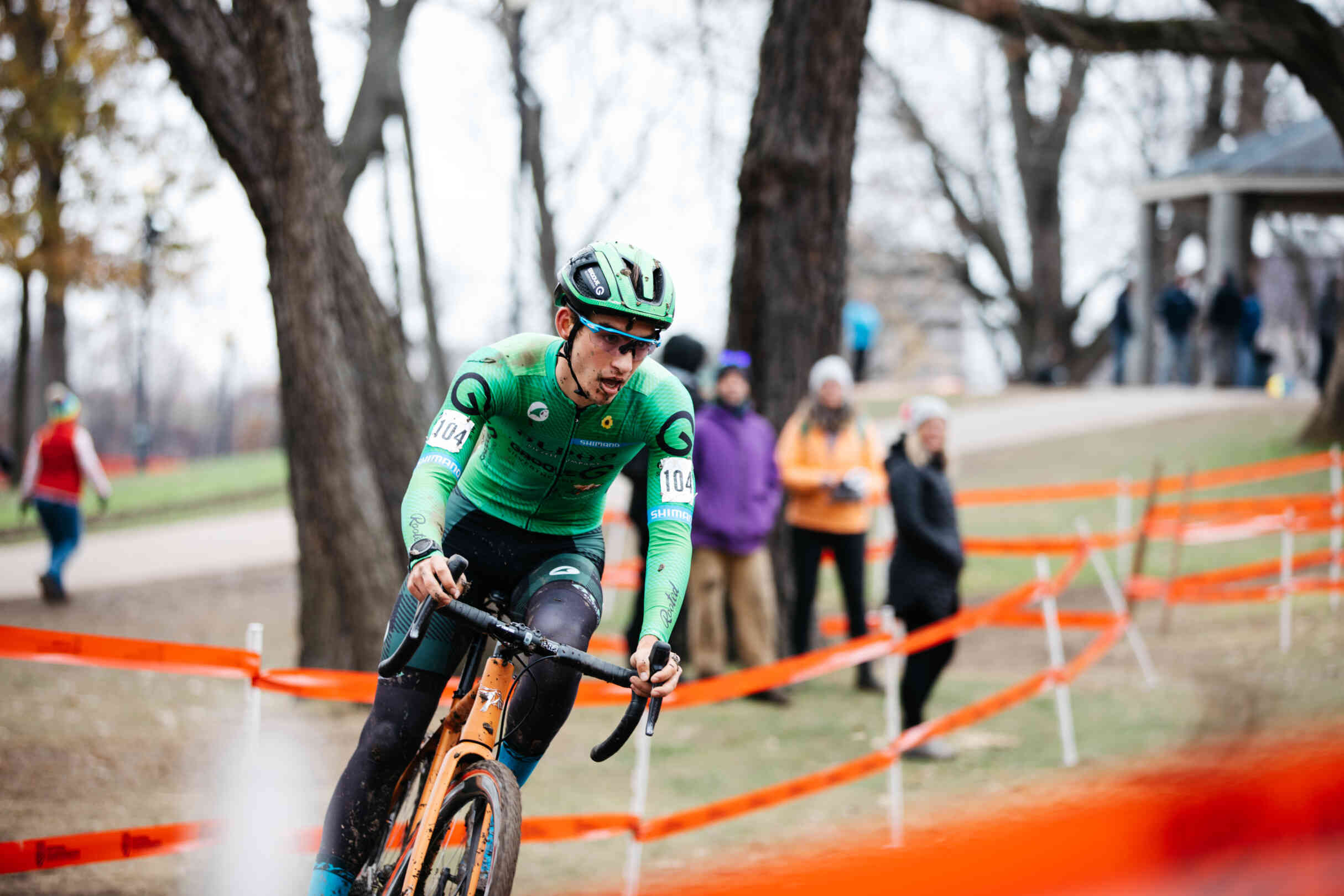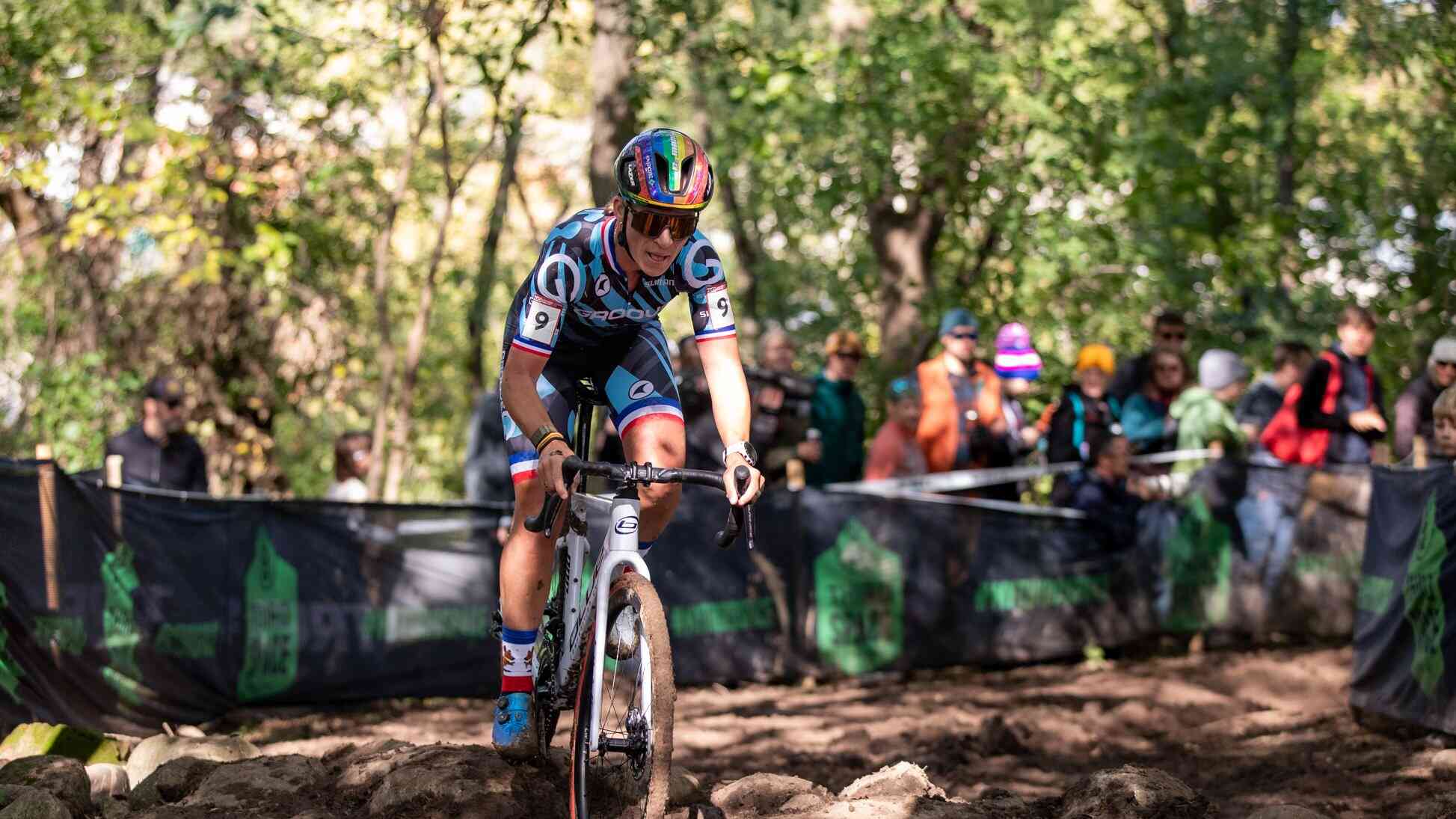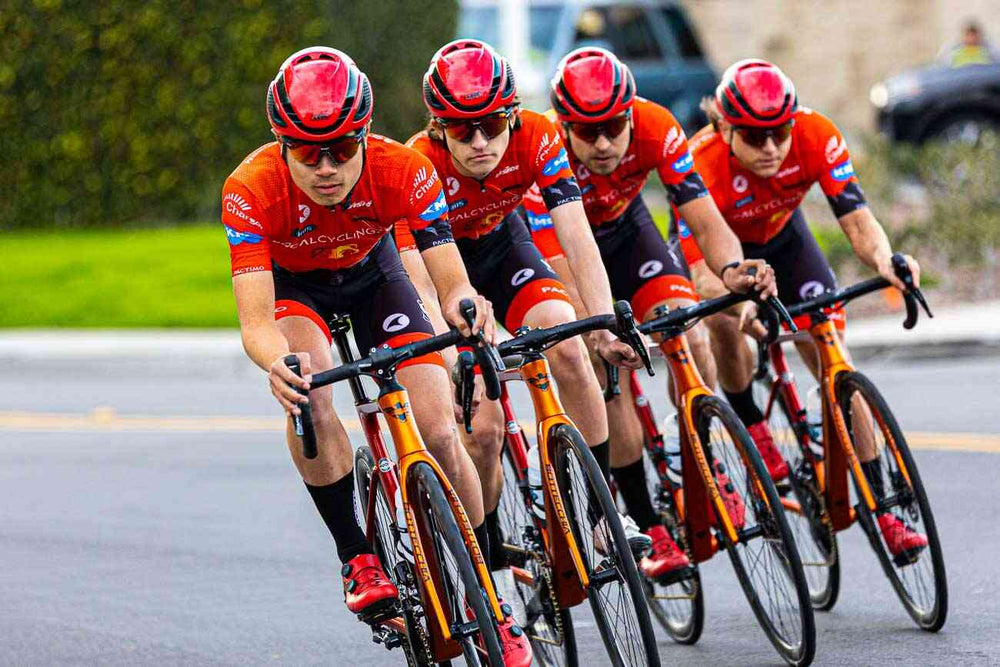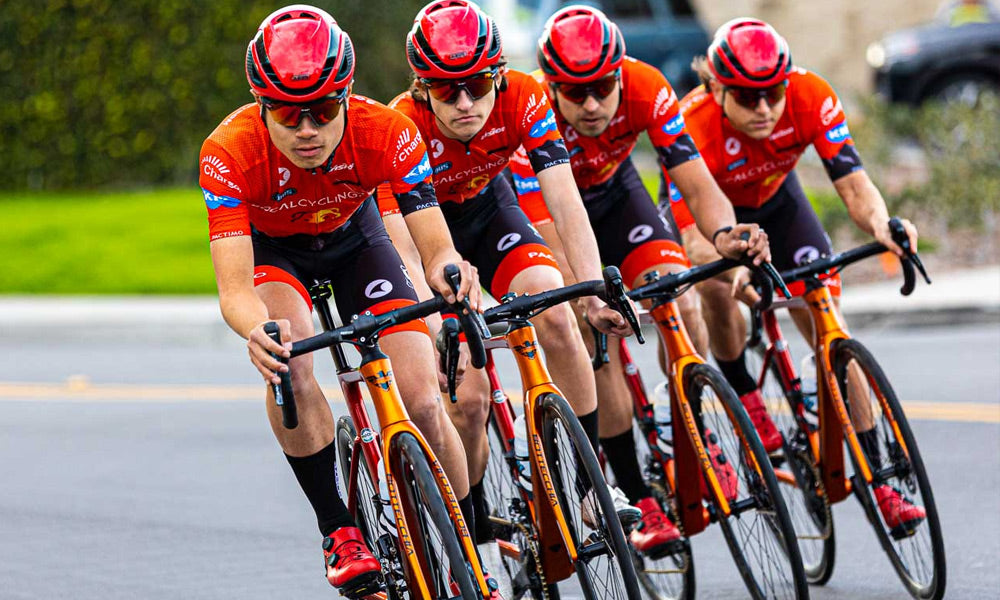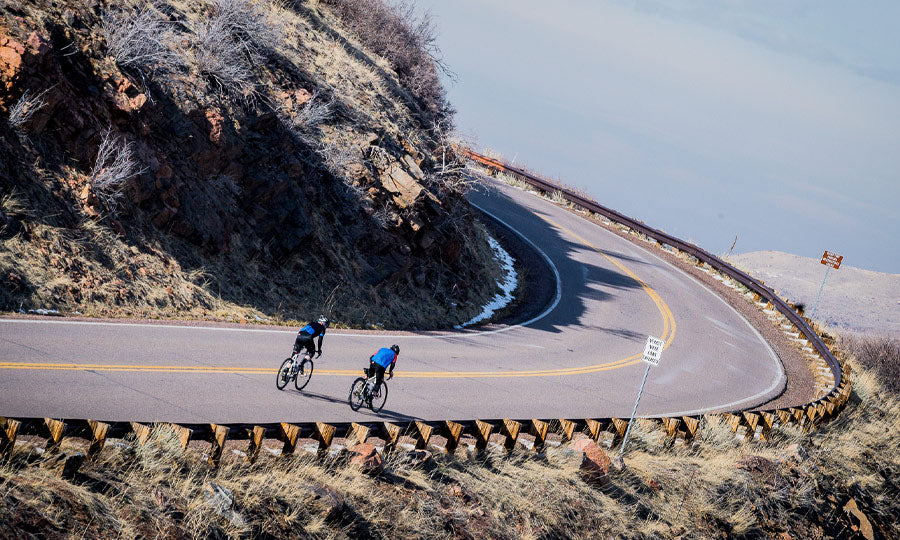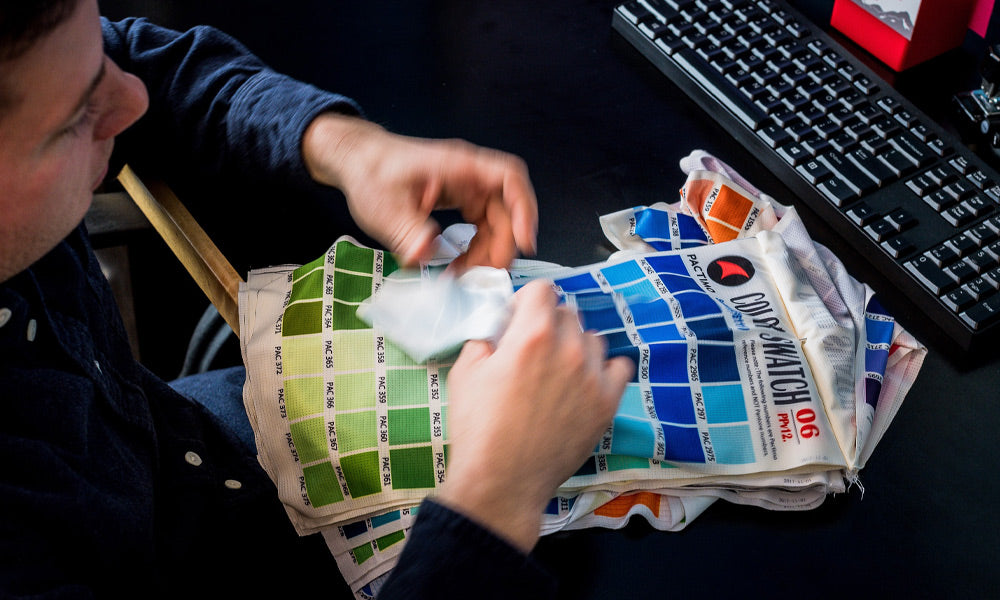16 Things With Patrick McCarty
A look at Rally Cycling Men's Director Patrick McCarty.
Men's team director Patrick McCarty has been in Europe since the season restart. After directing the team to two stage wins at the Tour de Savoie Mont Blanc courtesy of Gavin Mannion, he's been bouncing around between Italy, Spain, and France as the 2020 season heats up. We spoke with McCarty as part of our "Things With" interview series to find out more about the man from Texas and how he's found himself on the road full-time since retiring from bike racing.
The neighborhood I grew up on doesn't even have sidewalks. You're either in a car or you're not going anywhere. Most of the places in Dallas and North Texas aren't great for riding.
Once I got into cycling I just knew it was something I could do. There was no lightbulb moment where I thought, 'wow, I can actually do this', it was more just staying focused on whatever race was next. My parents were happy to support me because they realized you kind of have to take the opportunities as they come.
I still get really excited about going to the big international races. For a long time, I was more excited about just going to new places and having new adventures, but now that we're growing into this new level, being at the Tour de Suisse or La Fleche Wallonne last year was really exciting. After 14 years, it was a pretty amazing feeling to be racing at that level. .
There was this 'underground' bike racing scene. Sure, Texas is football-obsessed, but I grew up in the same place as Lawson Craddock and Chad Haga. There were even a few other kids in my high school that rode bikes too, so strange as it sounds there was actually kind of a scene there.
I kind of get hooked on traveling. It's just one of these things, it's a bit like riding the bike. You're either suffering on the bike and looking forward to recovering or you're looking forward to getting back out and suffering again. It's almost like you're on the road and it's nice to go home, band when you're home it's nice to get on the road again.
It feel safer in Europe right now. People take things seriously. Just being here in Europe is already a lot less stressful in that regard. Our doctors all feel completely safe with us being here because they understood the protocol and they're the ones seeing the effects of the virus up close and understanding that, yeah, there are ways to control it and mitigate the risk.
We had good results in Mont Blanc and Coppi e Bartali. This kind of validated our efforts a little bit, which is great. Emilia didn't go well but we still have more races ahead which I'm pretty encouraged by. Cycling is definitely in full swing right now, with all the drama, the surprises, and success - that's all happening full gas. And I think so far the sport has done a pretty good job of making it safe.
We have a team bubble in Europe. There is a UCI protocol in terms of testing, but we have our own bubble in place too that goes further. Before anybody flies from North America, they have to have a negative Covid-19 test within five days of the flight. Once we've established this bubble, of theoretically coronavirus-free people, we're just keeping them together. We're based up in Val-d'Isère in France where it's pretty quiet.
When I was 19 I moved to Belgium and raced full-time in Europe. That was a pretty rare opportunity, even for American riders these days there's just not that same amount of support to race fully as a young rider.
We should be more successful in cycling as a nation. I think there's a lot of talent because it's a very large country and I think we should have a lot more successes on the professional level. We could be one of the biggest, most successful, countries on the planet with the most WorldTour riders countries. To be honest, for me we have a bare minimum, considering the popularity of the sport in the US and what it could be.
It was a pretty bad time to turn professional. Everybody was basically riding a motorcycle. I think I was young and naïve and just assume things would change, I'd get my fair shot and it was just a matter of me waiting until some of these people were out of the sport. I was complacent that I was just talented and it was always going to work out for me.
I fought the sport for a while. I had a contract with Rock Racing, it was a last-ditch thing. I was just trying it stay in the sport. I was getting to that age where I couldn't really ride my amateur under-23 results anymore, and I just didn't have anything to show. When you're 25, 26, 27, it's like 'if you're not producing results and you're not a young rider anymore, you're kind of a has-been'.
My retirement wasn't planned. I had a couple of offers I could have done, but I was going to have to fight the sport again, scrap again to really stay in it, and I was just tired of doing that.
I directed with Optum's women's team for two years. That's how I fell into directing. I thought I was going to continue racing and there I was, I hadn't made plans. Even though it wasn't a position to race the bike, it was some kin of position on a bike racing team - it was very familiar territory.
I liked everybody I was working with. I started realizing some of the things that I had wanted out of the sport as a younger rider. I was seeing those were opportunities that our guys now actually have because things are different now. That's a big part of why I wanted to work with the women's team, initially, it was the underdog aspect. I was frustrated and at an end with men's cycling, so I was happy to start with something refreshing. Something I knew very well, the sport of cycling, but also something different.
I like working with athletes. To say it frankly, there's a lot less bullshit in your day-to-day when you're working with people that are focused and motivated and have strong personalities and strong goals..I just really, really enjoy that.
Being an old bike racer helps me as a director. I think there is actually a component of directing that, if you weren't a rider at some kind of high level, or at least raced bikes long enough to understand the nuances of the sport - and what you're actually communicating with your athletes about - then I think you are missing something. You have to know the sport, but I would say that being a good director is more about understanding cycling and being good at communicating.
READ THE ORIGINAL STORY ON RALLY CYCLING NEWS
